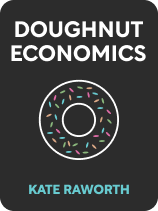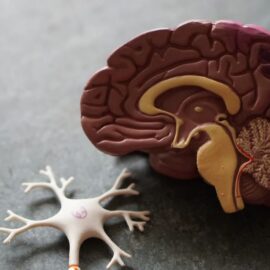

This article is an excerpt from the Shortform book guide to "Doughnut Economics" by Kate Raworth. Shortform has the world's best summaries and analyses of books you should be reading.
Like this article? Sign up for a free trial here .
What is “homo economicus”? Does the assumption of homo economicus reflect an average economic agent?
Economics, once focused on the study of the production of goods and services, has branched into psychology and now purports to explain the motivations and beliefs of the human beings who produce those goods and services. At the heart of the current economic theory is “homo economicus”—the idea that humans are rational beings making optimal economic choices in the light of perfect access to information.
Here’s why the homo economicus model is ultimately flawed, according to Kate Raworth.
Beyond Homo Economicus
What is homo economicus? In her book Doughnut Economics, Kate Raworth argues that traditional economics has a particular model of human beings: The model is homo economicus, and it asserts that human beings are essentially rational, utility-maximizing entities, able to process, calculate, and have perfect access to information to make the optimal choice for themselves in all situations. It is a portrait of humankind rooted in self-interest, unconcerned with deeper moral imperatives like charity or altruism: Rational economic man cares only about increasing his material wealth and will always follow incentives to do so.
| Information Asymmetry Leads to Poor Decisions Raworth and other writers argue that homo economicus is a flawed model for human behavior, in large part because humans are often making decisions with flawed or incomplete information. In Freakonomics, authors Stephen J. Dubner and Steven Levitt write about the phenomenon of information asymmetry—situations where information is unequally distributed between parties. Dubner and Levitt warn that information asymmetry can be skilfully exploited by experts who rely on knowing more than the other party in a transaction or negotiation to extract value from others. Information asymmetry can have a system-wide impact, with the 2008 financial crisis standing out as a prime example. In the run-up to the crisis, Wall Street financiers created products like derivatives and collateralized debt obligations, whose larger implications many investors simply did not understand. When the housing market collapsed, those investors who bought these products were wiped out, while the sellers, who possessed a major information advantage, made a tidy profit. |
Humans Are Social Beings
Raworth argues that the homo economicus model is a gross and inaccurate caricature of the nuances and complexities of the human condition. Rather than pure utility maximizers, we are highly social beings who prize intangibles like the respect, love, and admiration of our peers. Indeed, our lives abound with examples of reciprocity and altruism with no clear material benefit.
| The Benefits of Altruism Some writers argue that acts of reciprocity and altruism actually do offer clear material benefits because they foster tight bonds of social cohesion. In Influence, Robert Cialdini writes that, in early human communities, acts like sharing and gift-giving gave a strong evolutionary advantage to early human communities that practiced them—if another individual brought you some of their firewood, for example, it would behoove you to bring them some of your firewood later, because doing so would help the two of you survive and make the overall clan or tribe stronger. Cialdini argues that this cycle of altruism created networks of obligation among early humans, enabling communities to divide labor, trade for scarce goods with their neighbors, create systems of mutual defense, and develop social hierarchies. In a harsh and unforgiving environment, like those many prehistoric peoples faced, this was the only way to ensure group survival and prosperity. |

———End of Preview———
Like what you just read? Read the rest of the world's best book summary and analysis of Kate Raworth's "Doughnut Economics" at Shortform .
Here's what you'll find in our full Doughnut Economics summary :
- Why we need a top-to-bottom redesign of our global economic order
- Why long-term economic growth is unsustainable
- How inequality fuels a feedback loop that leads to more inequality






